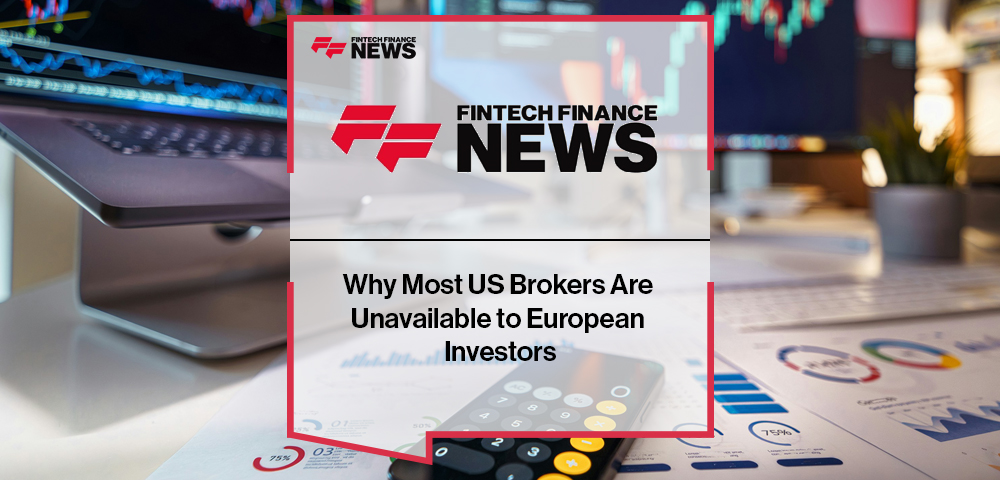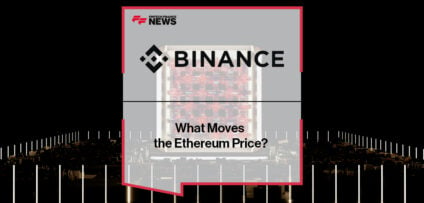Breaking News

Why Most US Brokers Are Unavailable to European Investors
For many European investors, the idea of trading through a US-based platform is appealing. Access to Wall Street, sleek apps like Robinhood, and the promise of zero-commission trades have created a global buzz. Yet, when investors from Italy, Germany, Spain or France try to open an account on these platforms, they often hit a wall.
“Service not available in your region.” No explanation. No workaround. Just a digital dead end.
This restriction isn’t personal. It’s regulatory. and once you understand the rules behind it, the logic becomes clear.
Regulation comes first
The financial world is governed by a patchwork of regulatory frameworks. In the United States, brokers are supervised by bodies such as the SEC (Securities and Exchange Commission) and FINRA. Their rules apply to US residents and institutions. These rules do not extend across the Atlantic.
For a US broker to offer its services to someone living in the European Union, it would need to comply with the EU’s financial regulations, particularly MiFID II. This isn’t just a technical formality. It would require the broker to change how it collects client data, presents risks, manages investor protection, and handles transparency. It would also mean being subject to local audits, fines, and obligations in each EU country where it serves clients.
Unsurprisingly, most US brokers prefer to avoid this level of complexity. Rather than adapting their entire operation to a new regulatory environment, they simply block access to non-US residents.
This creates frustration for European investors who want the same tools and access. Fortunately, the European market has evolved rapidly to fill this gap.
One useful guide to navigating this landscape is offered by RevenueLand, which regularly reviews trading platforms available to European investors and compares their features, accessibility and regulatory protections.
The tax gap no one wants to deal with
Beyond regulation, there’s another major obstacle: taxation. When you invest with a broker, you need to report your earnings in your home country. That includes dividends, capital gains, and sometimes even interest income or foreign exchange effects.
US brokers do not provide the local documentation or tax support required by European tax authorities. They issue IRS-compliant documents for American citizens, but you won’t get help generating a form for the Italian 730 or the Spanish modelo 100. This leaves you guessing or paying an accountant to do a manual reconstruction of your year’s trades, which can get expensive and risky.
European platforms, on the other hand, are increasingly aware of this need. Many of them integrate tools for local tax reporting or offer custodial arrangements that simplify everything. Some brokers automatically calculate gains using the FIFO method and classify dividends correctly for tax purposes. This level of support is hard to overstate when you’re dealing with dozens of trades, multiple currencies and annual filings.
If you’re curious about how European investors are adapting to modern brokerage tools, FFNews recently published an article on automation in brokerage infrastructure that highlights the role of seamless technology in this shift.
Consumer protection matters more than you think
Investing is not just about low fees and nice interfaces. It’s also about what happens when things go wrong. With US brokers, European investors have almost no legal protection. If your account gets frozen, if a trade executes incorrectly, or if the broker goes bankrupt, you have very few options.
You can’t contact your local regulator because they don’t oversee that broker. You’re not covered by any EU investor protection scheme, like the French FGDR or the German EdW. You may not even be able to reach customer service in your language.
In contrast, using a broker regulated in Europe means you have recourse. Complaints can be escalated. Authorities can intervene. There’s a safety net. It’s not just about avoiding problems, it’s about knowing you have a system that protects you if things go wrong.
Better alternatives already exist
While you can’t open a Robinhood account from Milan or Munich, that doesn’t mean you’re out of options. Europe is now home to several brokers that offer low-cost access to US markets, mobile apps, and simple onboarding.
Platforms like DEGIRO, Trade Republic, Scalable Capital and eToro provide access to the same US-listed stocks, often with similar or even lower fees. They’re licensed within the EU, provide customer support in multiple languages, and often assist with tax reporting. Some even let you invest in fractional shares or copy other investors’ portfolios.
For those who want to explore how these platforms compare and what features really matter, the team at RevenueLandhas put together practical overviews that break down everything from fee structures to regulation.
The real takeaway is this: you don’t need to cross regulatory borders to invest globally. You just need the right tools and the right broker that speaks your legal language.
A deeper dive
If you’re interested in the legal background and investor protection landscape in the EU, the European Securities and Markets Authority (ESMA) provides clear and updated guidance on cross-border investment rules and regulatory cooperation. You can read their official summary on this page.
- Bluefin and Basis Theory Partner to Enable Unified Tokenization Across Digital and In-Person Payments Read more
- Invest Bank and AUTON8 Build Partnership to Drive Digital Resilience and Banking Agility Read more
- ING’s AI Roadmap: Platform, People, and Agentic AI Read more
- UK-fintech Provided Over £17.5m in Emergency Wage Advances to More Than 55,000 Employees in the Last Year Read more
- TreviPay Announces AI-Powered Growth Center to Help Enterprises Predict Buyer Behavior and Drive B2B Sales Read more
















